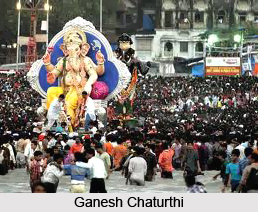 India is a vast country with various castes, creed, and colour hence a large number of festivals are celebrated in India in honour of their gods and goddesses. Since many communities exist here; the ways and method of celebrating these festivals also differ from state to state. But, the basic form of the belief behind their origin, the traditions and the excitement of celebrations is still the same for years. However, since India has a majority of Hindus, there is a preponderance of Hindu festivals.
India is a vast country with various castes, creed, and colour hence a large number of festivals are celebrated in India in honour of their gods and goddesses. Since many communities exist here; the ways and method of celebrating these festivals also differ from state to state. But, the basic form of the belief behind their origin, the traditions and the excitement of celebrations is still the same for years. However, since India has a majority of Hindus, there is a preponderance of Hindu festivals.
Cities or states are famous for the celebration of particular festivals e.g. Kolkatta (West Bengal) for Durga Puja, Mathura (Uttar Pradesh) for Holi and Janmashtami, Maharashtra for Ganesh Chaturthi, Kerala for Onam. Similarly, Muslim festivals of Id-ul-Zuha and Muharram are famous in Muslim community, Parsi festival of Jamshed Nav Roz in Bombay, Christian festivals in Goa and the Kaza festival in the Lamaistic strongholds of Ladakh, Lahaul and Spiti and Sikkim. In some tribal areas, the cult of Mother Goddess is more prevalent. However, the celebrations dissolve ethnic limitations and all religious groups merge into one, during such festivals.
Epigraphically evidences prove that festivals have been celebrated in India since Vedic times. The Aryans conquered India around 1500 B.C, and cultural integration with the local population took place. As time passed, some of their own gods lost importance and festivals in their honour died out.
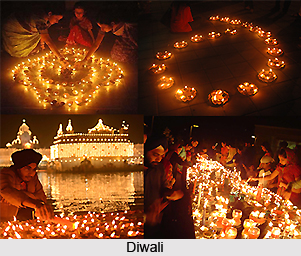 Later, certain pre-Aryan aspects of worship began to dominate. At the same time, the tribal people who had their own cults and worshipped serpents and other such entities and natural elements, came under the influence of the Hindus and started worshipping the Hindu deities.
Later, certain pre-Aryan aspects of worship began to dominate. At the same time, the tribal people who had their own cults and worshipped serpents and other such entities and natural elements, came under the influence of the Hindus and started worshipping the Hindu deities.
Many local festivals were celebrated in villages and every village has its guardian deities. They were celebrated on fixed days and could be the gramadevatas (village deities), for protection or the grahadevatas (evil spirits) for appeasement.
Feasting has always been a part of festive occasion and the people in ancient times, like us, enjoyed them. During the festivals, whole nation gets vibrant and colourful as it resurrects itself from the repetitive and tiresome routine. Fun, get-togethers, special food and sweets, colours, crackers, loud music, dance and dramas though, are the characteristics of the festivals in India.
Hindu festivals
There are a number of Hindu religious festivals that are officially recognized by the government as "closed holidays" and the biggest of these occur within two blocks of time after the end of the southwest monsoon. Cuisine, dresses and ornaments, with the profusion of golden, red and yellow colors, cultural and traditional performances and music, chariot and car procession of the deities and interesting folklores are at the heart of Hindu festivals.
Muslim Festivals
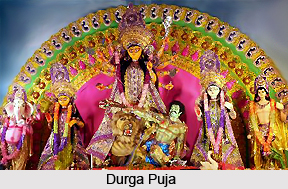 The Pilgrimage to Mecca during the month of Dhu al-Hijjah, is compulsory once in a lifetime for every follower of Islam. The Islamic calendar followed by the Muslims started on the Hijrah.The migration of the Prophet Muhammad from Mecca to Madina in 622 AD is called Hijrah. The beginning of Hijrah 1407 corresponds to the Gregorian year 1987(January). The months of Hijrah year are: Muharram, Safar, Rabbi-ul-Awwal, Rabi-us-Sani, Jamad-ul-Awwal, Jamad-us-Sani, Rajab, Shaban, Ramzan, Shawwal, Zil Qaid and Zil-Hajj (Dhu al-Hijjah. Islamic festivals mostly are religious.
The Pilgrimage to Mecca during the month of Dhu al-Hijjah, is compulsory once in a lifetime for every follower of Islam. The Islamic calendar followed by the Muslims started on the Hijrah.The migration of the Prophet Muhammad from Mecca to Madina in 622 AD is called Hijrah. The beginning of Hijrah 1407 corresponds to the Gregorian year 1987(January). The months of Hijrah year are: Muharram, Safar, Rabbi-ul-Awwal, Rabi-us-Sani, Jamad-ul-Awwal, Jamad-us-Sani, Rajab, Shaban, Ramzan, Shawwal, Zil Qaid and Zil-Hajj (Dhu al-Hijjah. Islamic festivals mostly are religious.
Sikh Festival
s
Guru Nanak founded Sikhism, youngest religion practiced in India. Sikhism started as a reaction to Hinduism that had become too ritualistic. The Granth Sahib is the central object of Sikh worship and ritual. The festivals of the Sikhs are mainly religious and they organize kirtans (hymn-singing), katha (discourse), ardas (supplication), karah parshad (consecrated food) and langar (free food distribution from the gurudwara kitchen). The Sikh festivals are based on a combination of the lunar calendar and the solar calendar of Northern India. There are two broad categories of festivals; the celebration of the birth or martyrdom of some of the Gurus and festivals that celebrate important events in the development of the religion itself; thus the prominent festivals of the Sikhs include Gurupurabs and Baisakhi.
Christian Festivals
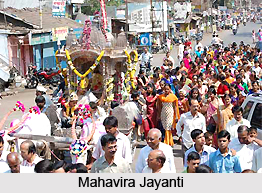 Christianity came to India in 52 AD. As a result of differing interpretations of Christian scripture, different denominations have sprung up, including the Church of England, the Roman Catholic Church, the Eastern Orthodox Church and many others. The most important Christian festivals are: Lent, Easter and Christmas, which have a lot of fasts and prayers, since these different occasions are of mourning, devotion and joy.
Christianity came to India in 52 AD. As a result of differing interpretations of Christian scripture, different denominations have sprung up, including the Church of England, the Roman Catholic Church, the Eastern Orthodox Church and many others. The most important Christian festivals are: Lent, Easter and Christmas, which have a lot of fasts and prayers, since these different occasions are of mourning, devotion and joy.
Jain Festivals
Jainism doesn`t have a single founder, but there have been many Tirthankaras, who are teachers and they have shown the path to follow Jainism. As great omniscient teachers, Tirthankaras accomplished the highest spiritual goal of existence and then taught others how to achieve it. In what Jains call the "present age" there has been 24 tirthankaras - although there is little evidence for the existence of most of these. The Jains practise the following important festivals, viz: Mahavir Jayanti & Dev Diwali.
Buddhist Festivals
Buddhists strive for a deep insight into the true nature of life and do not worship gods or deities. They are tolerant of those whose beliefs are different from theirs. It is 2500 years old with 350 million followers. Buddhism teaches compassion and believes that nothing is permanent and change is always possible. The dates of Buddhist festivals and the way they are celebrated vary in Buddhist traditions and from country to country. In India, the celebration of the Buddhists includes the festival of Buddha Jayanti.
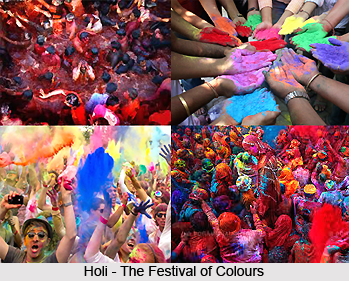 Parsi Festivals
Parsi Festivals
Although the Parsis of India originally emigrated from Persia, they no longer have social or familial ties to Persians, and do not share language or recent history with them. Over the centuries since the first Zoroastrians arrived in India, the Parsis have integrated themselves into Indian society while simultaneously maintaining their own distinct customs and traditions. This in turn has given the Parsi community a rather peculiar standing - they are Indians in terms of national affiliation, language and history. Some of their festivities include Gahambars, Khordad Sal, Zarthost No Deeso, Jamshed Navroz and Pateti.
Jews Festivals
Indian Jews are a religious minority of India. Judiasm was one of the first religions to arrive in India and assimilate with local traditions through cultural diffusion. Of the total Jewish population in India, about half live in Mizoram and a quarter live in the city of Mumbai. Every religion has its own festivals and Judiasm is no exception to this rule. Some of the religious festivals of the Jews include Sabbath, Rosh Hashanah, Passover & Pentecost, Yom Kippur & The Feast of Tabernacles and lastly Purim.
Temple Festivals
No festival in India is complete without a feast and the Hindu temples provide feasts during the temple festivals. The attendees spend all day at the temples, enjoying themselves, since the temple officials hold special worship and prayer times for the festivals. The temple festivals are celebrated in commemoration of some legend of the temple deity. A temple festival is concluded with a spectacular fire works display, which is held in the early hours of the day. The fireworks are presented in innovative patterns and varieties, which really excite and surprise the spectators. This famous and mighty exhibit of the magnificent display of fireworks adds to the popularity of the temple festival.



















